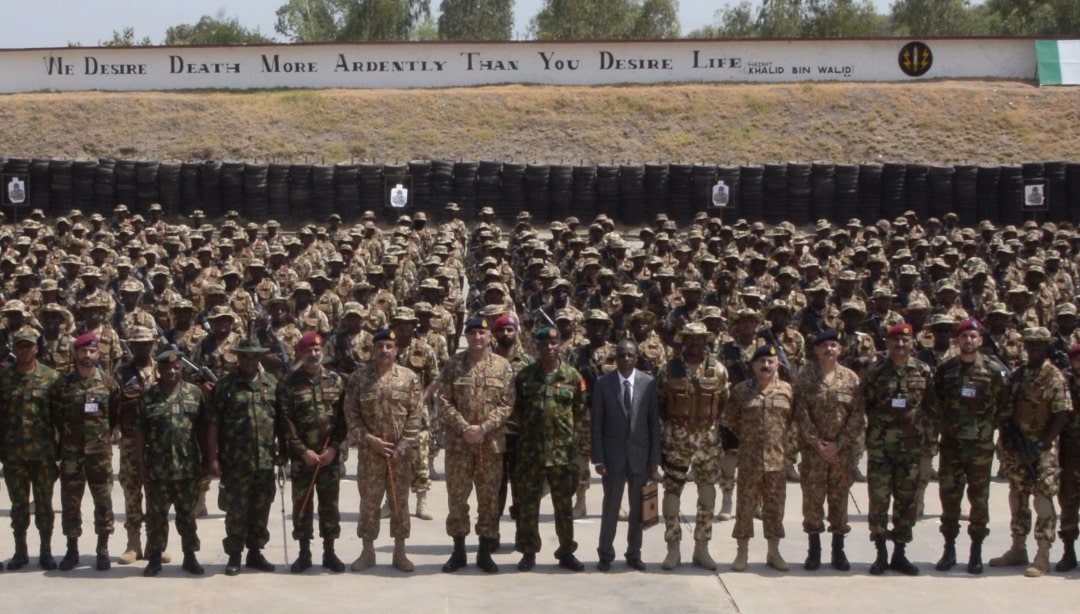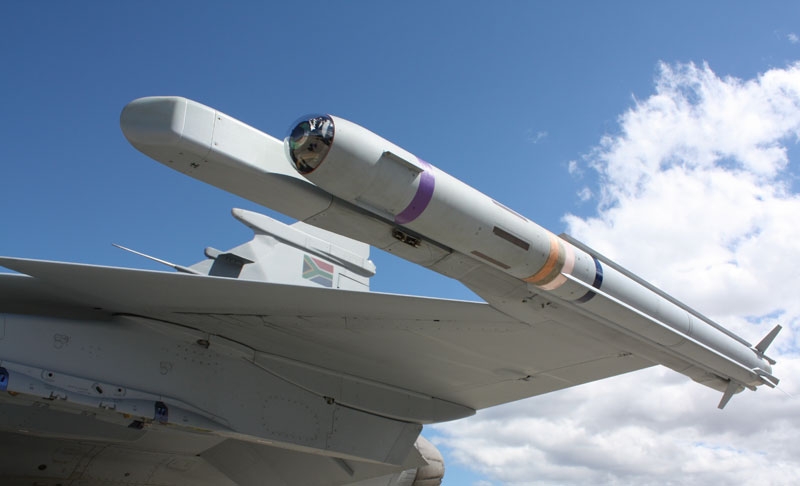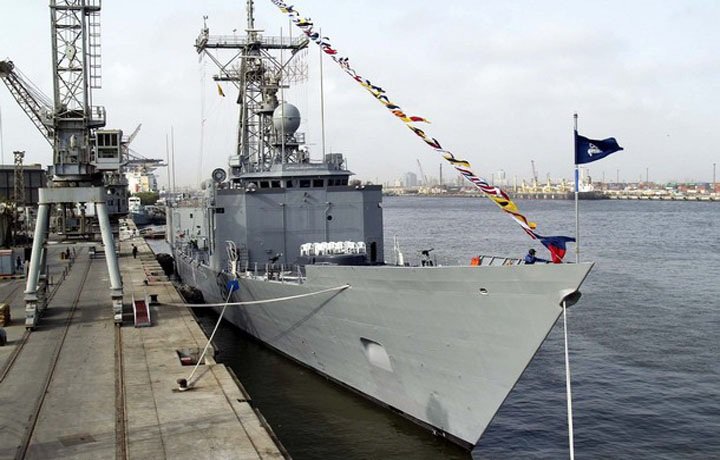1553Views 4Comments

Nigerian Special Forces battalion completes training course in Pakistan
A Nigerian Army Special Forces battalion recently completed an eight-week counter-terrorism training course in Pakistan under the stewardship of the Pakistan Army’s Special Service Group (SSG).
According to the Associated Press of Pakistan, the Nigerian contingent, which numbered at 440-strong with 26 officers, was trained in Tarbela, which is the SSG’s headquarters. The Pakistan Army Chief of Army Staff Gen. Qamar Javed Bajwa congratulated the group.
Pakistan has prided itself on the development of its counterinsurgency (COIN) capabilities, which had been built in response to the pressures of engaging in COIN operations in its restive northwest regions. In terms of infantry training, the Pakistan Army established the National Counter Terrorism Centre (NCTC) in 2014 in Khariyan Cantt. Since its forming, the NCTC trained more than 231,000 soldiers and 3,483 officers.
Due to inadequate training, equipment and doctrine on the part of Pakistan’s paramilitary and regular army for COIN pre-2010, the SSG had undertaken the mainstay of the armed forces’ ad hoc operations.
The Pakistan Air Force (PAF) has also established a COIN training arm at its Airpower Centre of Excellence (ACE), which will provide capacity building in aerial intelligence, surveillance and reconnaissance and close air support missions.
Notes & Comments:
Pakistan has a burgeoning defence relationship with Nigeria. In August, the Nigerian Air Force (NAF) Chief of Air Staff (CAS) Air Marshal Sadique Abubakar requested Pakistan to assist in training Nigeria’s special operations forces (SOF). However, it had seemed that the NAF’s request was confined to its own SOF arm, which is relied upon to protect the NAF’s airfields and key installations. The reality of the Nigerian Army’s SOF arms training in Pakistan points to a deeper military-to-military relationship.
Besides training, Nigeria has also signed onto buying big-ticket defence hardware from Pakistan. In June, Nigeria inked a purchase of 10 Super Mushshak trainers from Pakistan Aeronautical Complex (PAC). This was to be accompanied by PAF training support at the NAF’s 310 Flying School. The NAF received its first bath of Super Mushshak trainers (temporarily drawn from existing PAC stocks until the NAF’s newly built aircraft are ready) in December. This was accompanied by a purchase of three JF-17 Thunder multi-role fighters from PAC, the acquisition of which had been budgeted in Nigeria’s 2016 fiscal budget.
Nigeria’s capacity building efforts are drawing from several suppliers. In April, the NAF formally inducted its first two (of 12) Mi-35M assault helicopters ordered from Russian Helicopters. The NAF is also closing in on a purchase – reportedly valued at $600 million U.S. – for 12 Embraer-Sierra Nevada Corp. A-29 Super Tucano attack aircraft. For Nigeria, and Sub-Saharan Africa in general, an acquisition spree of this scale is rare, with other heavier drivers of this growth being South Africa and Angola.



4 Comments
by Kazmi
This is remarkable COIN capability that Pakistan has and again the good kind of cooperation between the armed forces of both the brotherly countries Nigeria and Pakistan. Well done and keep it up. Pakistan must extend such cooperation to other Islamic and allied countries.
by Aga Majid
Pakistan and Nigeria have long standing relationship in health, education, infrastructure, and armed forces since Nigeria’s independence. Pakistan supported the territorial integrity of Nigeria during the Western sponsored Biafra War, pitting Christian minority of Nigeria against Muslim majority.Pakistani teachers from different schools and universities helped support Nigeria’s education systems.Nigerian students studied in Govt College, now GCUL, and KE College. Nigeria also supported efforts to keep together United Pakistan. Thus,Nigeria has been a friend of Pakistan since its independence.
by Steve
This is excellent news, even though it is well known for a while that Pakistan and Nigeria are developing a strong alliance. This should be deepened and broadened. Nigeria has the largest population of any African country, is Muslim, has oil, and is influential in Africa. It is close to the Sahel and we can get access to resources needed for our development. For instance, Niger next door has 8% of the worlds uranium mines, and our indigenous uranium supply is limited. All local countries are beset by militancy problems, and we can offer expertise, military advisors, and our good offices in mediation. We have a good reputation in Africa because of extensive UN work in Congo, Angola, and Ethiopia for instance. We have not got money to build roads like the Chinese, but we have good men with guns! There is a lot of French influence and bases in the Sahel with America’s blessing, but they are thin on the ground. We can insert ourselves in there, possibly on a ‘goods for protection and training’ deal, but may need to communicate that we don’t want to step on French toes and are actually helping them. Time to think big!
by Amir
The Biafra war was not based on religion so it’s not really accurate to describe it in that manner. It’s origins were more based on tribal affiliations and a struggle between the desire of the Northern Region to control power and the newly found oil revenues and the South represented primarily by the Ibos. During the civil war Pak played almost no role. Rather Egyptian and East German pilots flew Nigerian MIG21s and th British and the Soviet Union were the principal backers of the Gowan regime.